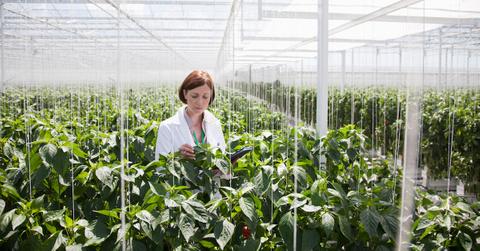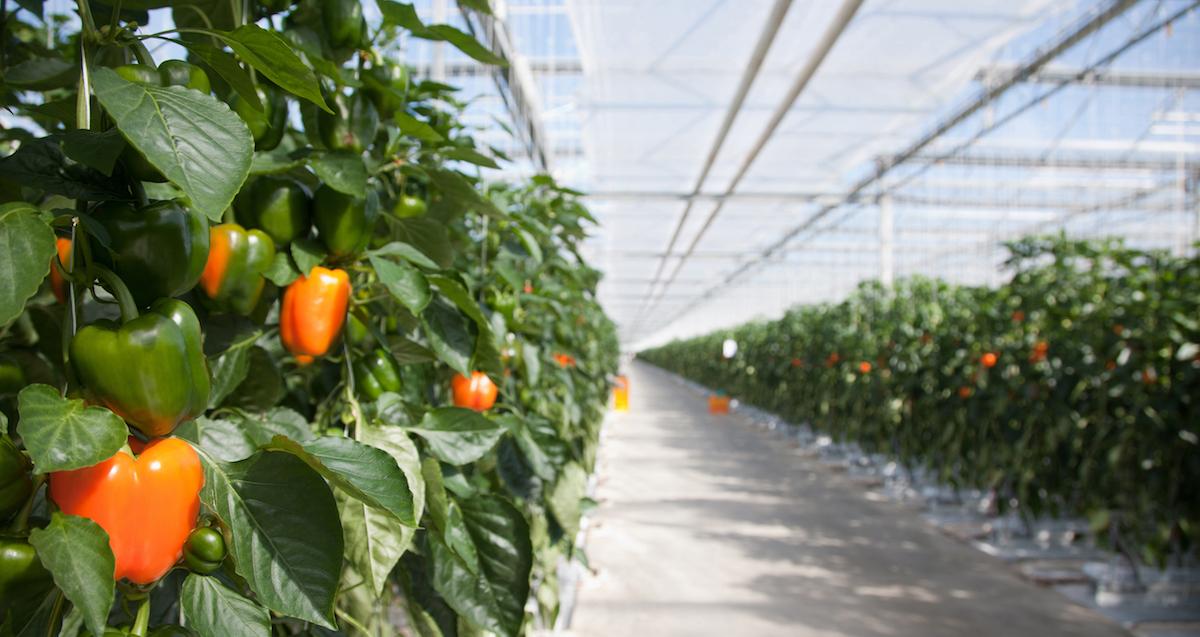What Is Hydroponic Gardening? Here's How Soil-Free Gardening Works
Published Dec. 22 2020, 3:31 p.m. ET

The concept of hydroponic, water-based gardening has actually been around for thousands of years. It’s an environmentally-friendly process that uses different “growing mediums” to facilitate plant growth without the aid of soil. Scientists study it at NASA, governments are beginning to adopt it, teenagers use it in the classroom, and hobbyists are even starting to grow their own hydroponic gardens in their homes. Yet, in order to understand the complex system that allows plants to grow without soil, we must first answer the question, what is hydroponic gardening?

What is hydroponic gardening?
Two of the earliest examples of water gardening are the fabled Hanging Gardens of Babylon, which was said to be one of the first Seven Wonders of the ancient world, and the Floating Gardens of China, as per History. Both of these wondrous gardens were the work of early human ingenuity, though it would thousands of years before the idea of a soil-less garden found its way back into our collective consciousness.
It wasn’t until the 1950s that scientists started experimenting with soil-less gardening again. Since then, many countries have begun using hydroponics for crop production, including Holland, Germany, and Australia, to name a few. Nowadays, it’s one of the most widely-used agricultural practices — and it’s used for much more than just growing a few cannabis plants in your cousin’s basement.
What are the benefits of hydroponics?
Believe it or not, hydroponics has proved to have several advantages over soil gardening. According to TheHydroponicsPlanet, the growth rate on a hydroponic plant is 30 to 50 percent faster than a soil plant, grown under the same conditions. And not only do these plants grow faster, but their yield is also far greater. But why are plants grown without soil growing so much better?
Scientists believe that hydroponic plants grow better because of the extra oxygen present in the growing mediums that are used in hydroponic systems, as per TheHydroponicsPlanet. Plants with more oxygen in their root system help them to absorb nutrients faster than those in aerated soil.
Additionally, in a hydroponic system, the nutrients are mixed in with the water, which is then delivered right into the root system. Because of the flow of the water, the nutrients are being delivered to the root system several times a day, so very little energy is used by the plant, thereby giving it more energy to grow faster and produce more fruit.
Another benefit of hydroponic gardening has to do with a distinct lack of garden pests that are present in other soil-related forms of agriculture. No dirt means fewer bug infestations, fewer fungus problems, and less disease. Plants grown on hydroponic farms tend to be happier, healthier, higher-producing plants.
Can I make a hydroponic garden at home?
The short answer to this question is yes, you can. The more complicated answer is that the process is not nearly as simple as “planting a seedling into the ground.” There are a number of considerations that go into a hydroponic setup: space, electricity, type of setup, nutrient mix, and perhaps least of all, what you plan to grow. Many hydroponic supply places will sell you a full setup, with all corresponding pumps, cradles, and pieces, but diehard hydroponics-heads will tell you that you should build your own system from scratch.
Most experts would recommend getting an inexpensive system to start so that you can learn the process first. Once you know how it works on a small scale, you can level-up to a larger growing enterprise. Also, check out online hobby groups, such as this Facebook group, dedicated to hydroponic gardening. These are good places to find like-minded individuals and small-time experts to help you get started.
What type of nutrients are used in hydroponic gardening?
There are several ways to go when it comes to choosing nutrient mixes for your hydroponic gardening. Most hydroponic fertilizers contain the same mix of nutrients needed for plant growth. They can be organic or chemical mixes, are available at many gardening or specialty gardening stores, and are generally highly-concentrated. This is because most nutrient mixes need to be mixed into the water supply of a hydroponic setup before being administered.
Why is hydroponic gardening good for the environment?
Hydroponic gardening is a home run as far as eco-friendly farming practices go. Hydroponic farms use less water than conventional soil-based farms, because they are constantly reusing their nutrient solutions, rather than dumping them down into the soil. Hydroponic farms also have less need for pesticides, which can harm the soil, water table, local wildlife, and more.
No soil also means no soil erosion, no soil nutrient degradation, and no need for slash-and-burn farming practices. In fact, if soil conservation is not taken more seriously in the coming years, hydroponics might be the only viable eco-friendly farming solution left. This would not be a bad thing, per se, but it certainly makes you think twice about the impact even something as essential as agriculture is having on our planet.